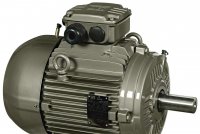Major environmental and financial benefits have been achieved by WEG, following the installation of an automated extraction filtering system at one of its foundry plants in Brazil. The automated system has achieved a reduction in CO2 emissions of 23.63 tons per year, which represents a 53% decrease on previous emission levels from the foundry, and a 50% energy saving on the operation of the automated extraction system. To put these savings into context, it is estimated that five trees are required to absorb each ton of CO2 from the atmosphere. This means that to absorb the amount of CO2 resulting from WEG’s initiative would require 118 trees each year.
WEG’s new solution can be applied to any extraction system using bag filters. It is part of the company’s policy towards environmental protection. Importantly, the same solution is already actively being considered for implementation in cement, aluminum and steel industry sectors.
About the Extraction System.
WEG’s extraction system operates in the foundry plant 24- hours a day, 269- days a year. However, due to process variations and demand, at least three grinding machines in the foundry used to remain inactive for about 12- hours a day, resulting in unnecessary extraction from the machines.
WEG has used a combination of its new WMagnet (permanent magnet) motor and a CFW-11 inverter drive system to provide a solution to this problem, and deliver energy saving from the extraction system. Designed to provide constant torque across its entire speed range, the WMagnet/CFW-11 combination effectively matches the output of the extraction system to operational need.
The WMagnet motors offer the advantage that they deliver a significant reduction in energy losses compared to an induction motor, resulting in a lower temperature rise and increased operating life.
In addition, as energy (Joule) losses account for a significant portion of total losses in induction motors, the PM motor delivers much higher efficiencies (up to 97.5%), easily exceeding the new harmonised IE (International Efficiency) standards: IE2, which come into force July 2011, IE3, and also, importantly, attaining IE4.
Complementing the efficiency of the WMagnet motor is the patented Optimal Flux feature in WEG’s latest CFW-11 inverter. Integrated into the CFW-11 software, Optimal Flux control enables motor loss minimisation to be achieved automatically, keeping motor torque constant, and motor temperature rise within the thermal class limit, even at low operating frequencies where ventilation is reduced.
WEG, in a joint partnership with Renner Têxtil, a textile company, has also increased the life of the bag filters used in the extraction system. This was achieved by manufacturing the bags from synthetic fibres, which are less subject to damage. Further life improvement also resulted from optimising the pressure and flow settings required by the process, minimising the possibility of damage to the filters, and reducing emissions of particles into the atmosphere.
The increase in the life of the bag filters, plus the maintenance cost reduction and the significant decrease in energy consumption achieved by this solution are all crucial factors that have applicability across the majority of market sectors, due to the prevailing high cost of energy and the unrelenting nature of global competition, which puts increasing pressure on costs.




